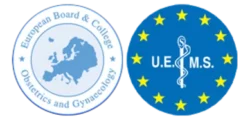n
Position Statement from the European Board and College of Obstetrics & Gynaecology (EBCOG)
The Public Health Importance of Antenatal Care
n
The health of future generations is to a great extent determined by the baby’s growth and development within the womb. The success of fetal life determines not only the health of the newborn, but also has a major impact on adult health and disease risk.
n
n
Good perinatal health is therefore important to individuals, to society and to future generations.(1) The purpose of this EBCOG Position Paper is to underline the public health importance of free, unhindered access to antenatal care, and to emphasize the role of the obstetrician in continuously improving services that meet this need.
n
n
Large disparities exist in perinatal health, not only between countries, but also within cities and population groups.(2) Most problems at birth are caused by prematurity, fetal growth restriction, congenital abnormalities or asphyxia. With access to antenatal care, especially in early pregnancy, many of these can be prevented or anticipated. Particularly relevant in this respect are modifiable lifestyle risks such as smoking, alcohol consumption, drug abuse, obesity, malnutrition, inadequate folic acid intake and occupational exposures. Perinatal mortality and morbidity can be up to three times higher in some socially deprived districts, while the effects of poverty on perinatal health are not limited to immigrant groups. The accumulation of non-medical risks, particularly social and mental problems, as well as inadequate access to appropriate care, are all contributory. (3)
n
Current antenatal care which focusses mainly on medical risks, needs to evolve to include non-medical factors and to reach out to all parts of the community. There is a need for greater awareness among healthcare professionals of the personal and community life of pregnant women, including social deprivation and domestic violence. Services need to be multiprofessional so they can address both medical and social issues. Clinics should not only be able to cope with complicated obstetrical issues, including chronic disease (obesity, hypertension, diabetes, infections), but also social, psychiatric and addiction problems. In particular, care needs to reach women who would not otherwise make use of the available services.
n
n
EBCOG considers that it is the public health responsibility of obstetricians, together with midwives, nurses and general practitioners, to organize appropriate care for vulnerable groups. This can only become effective when antenatal care is linked with local public health initiatives, including social services and youth care, which address lifestyle and social issues. This approach is challenging, but the benefits are considerable. (4)
n
n
Furthermore because the initial phases of pregnancy have a large impact on perinatal and subsequent adult health, optimal care needs to be initiated before pregnancy. The promotion of preconception health will not only improve women’s general health but have a favourable effect on the health of the next generation.
n
n
Preconception care may require a change of mind set both for healthcare professionals and also for women, their partners and their families, but again the benefits to society could be great.(5)
n
n
Thus EBCOG believes that recognition of the public health importance of pregnancy-related care is essential to improve the health of current and future generations, and that this care will also diminish the adverse effects of poverty in vulnerable communities. Local and national governments have a responsibility to recognise this public health need and to consider the costs and benefits of free access to both antenatal and preconception care.
n
n
1.Barker D, Barker M, Fleming T, Lampl M. Support mothers to secure future public health. Nature 2013; 504; 209-10.
n
2.de Graaf JP, Steegers EA, Bonsel GJ. Inequalities in perinatal and maternal health. Curr Opin Obstet Gynecol 2013; 25: 98-108.
n
3.Fraser MR. Bringing it all together: effective maternal and child health practice as a means to improve public health. Matern Child Health 2013; 17: 767-75.
n
4.Denktaş S, Poeran J, van Voorst SF, Vos AA, de Jong-Potjer LC, Waelput AJM, Birnie E, Bonsel GJ, Steegers EAP. Design and outline of the Healthy Pregnancy 4 All Study. BMC Pregnancy and Childbirth 2014; 14: 253
n
5.Temel S, van Voorst SF, Jack BW, Denktaş S, Steegers EA. Evidence-based preconceptional lifestyle interventions. Epidemiol Rev 2014; 36: 19-30.
n
n
The first draft of this Position Paper was written by Professor Eric Steegers, Erasmus MC Rotterdam, The Netherlands and peer reviewed by the following: Professor Beatrice Blondel, INSERM, Obstetrical, Perinatal and Pediatric Research Team, France; Professor Diogo Ayres de Campos, University of Porto; Professor Mika Gissler, THL National Institute for Health and Welfare, Finland and NHV Nordic School of Public Health, Sweden; Professor Ellen Loekkegaard, University of Copenhagen; Associate Professor Kristiina Rull, Tartu University Hospital, Estonia; Dr Nataša Tul , University Medical Centre, Ljubljana; Professor Vlad Tica,
n
Constanta University Regional Emergency Hospital “Saint Apostle Andrew”, Romania; Professor Olivera Kontic Vucinic, School of Medicine, University of Belgrade.
n
n
The final version was approved by the President and Executive of EBCOG
n
n
n
#AudienceEngagement #Blog #Antenatal
